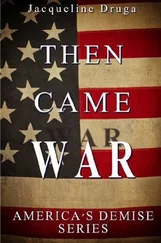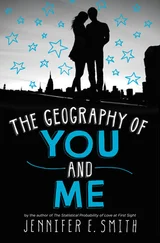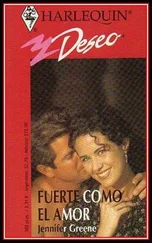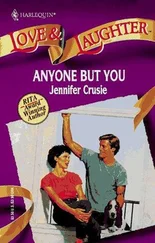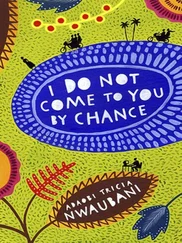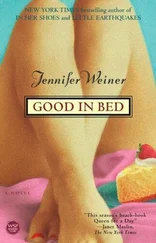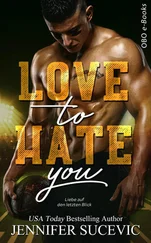But that was Nancy for you, I thought, snapping the buckles of Spencer’s car seat closed, then hurrying back into the house for string cheese and sippy cups, to pull my cell phone out of its charger and grab my purse. She used to be fat and bossy, and then, when she finished high school, she’d gone to work in a doctor’s office that did gastric banding and gotten the procedure and become skinny and bossy. One of the doctors in the practice had fallen for her, so now she was married and bossy, with that college degree that she never once let us forget about, the first one that anyone in our family had earned. I should just be grateful, I thought, as I got behind the wheel, that she and Dr. Scott were generous, even though I could feel a bitter taste crawl up the back of my throat whenever Nancy sweetly offered my parents a loan or slapped down her platinum card to pay for their gas or their groceries.
My mom was waiting at the door, waving as if she hadn’t seen us in months, when, in fact, we’d had dinner with her on Friday. She looked like a children’s book drawing of a grandma, short and plump, with white hair drawn back softly in a bun, a rounded face, and pink cheeks. She wore a flounced denim skirt, a frilly white blouse, boiled-wool clogs on her feet, and a yellow-and-pink apron in a cheerful paisley pattern around her waist. Frank Junior and Spencer pelted up the concrete stairs and into her arms. “How are my handsome boys?” she crooned, hugging them, making me feel ashamed for the way I judged her. Maybe she was silly and forgetful, maybe she spent a lot of time involved in the feuds and dramas of the Real Housewives of whatever city Bravo was visiting that season, but she loved my father, she loved me and Nancy, she loved her grandsons, she loved Frank, and she even managed to love Dr. Scott, who had the good looks and personality of a dried booger.
The condo was toasty warm, smelling like baked-apple air freshener and cinnamon potpourri. It wasn’t a big place to begin with, and my mom had covered every available wall and surface with framed stitched samplers, frilly doilies, cushions embroidered with inspirational sayings, scented candles, fringe-shaded lamps, and collections of commemorative snow globes, shot glasses, and thimbles from every place from Branson to Atlantic City to Disney World. On the coffee table were cut-glass dishes of nuts and foil-wrapped candies whose colors would change with the season and were currently pastels for Easter. In the bathroom, extra rolls of toilet paper were tucked underneath the skirts of dolls with old-fashioned dresses and yellow yarn hair. There was even a crocheted sock-style wrap for the air freshener can. The first time we’d visited, Frank said my parents’ place looked like a Cracker Barrel had thrown up in the living room.
“I baked cookies!” she cried as Spencer inserted a whole pistachio, still in its shell, up his nose, and Frank Junior crammed a fistful of pale-pink M&M’s into his mouth. Moving fast, I scooped the nut out of Spencer’s nostril, gave Frank Junior a stern look, gathered up the dishes of peppermints and butterscotch candies, Hershey’s Kisses and Swedish Fish, and put them out of reach.
I turned from the mantel, from which Christmas stockings hung year-round, and saw my sister standing in the kitchen door, studying me.
“Hi, Nance.”
She nodded. In high school, she had our mother’s rosy cheeks and fine, flyaway light-brown hair. She’d been pretty, sweet-faced, with soft features and a body as plump as a bunch of pillows tied together. It had been hard to take her seriously when she told me what to wear and what to do during the daytime when, at night, I’d fall asleep while she cried over some insult, imagined or, more often, real.
Now she was a size two with a butt and belly you could bounce quarters off of, and she worked as a part-time bookkeeper and receptionist in Dr. Scott’s office and spent most of her time working out, buying clothes to show off her new body, and, as she’d told Mary Sheehan, a classmate we’d bumped into Christmas shopping at the Franklin Mills mall, “planning our next vacation.”
“That was kind of rude,” I told her when we stopped at the food court. I was having a pretzel, she was sipping bottled water.
“It’s true,” she’d said with a shrug of her narrow shoulders. “She asked what I do, and I told her.”
I took a bite so I wouldn’t say something smart, or point out that Nancy and Dr. Scott, who had chosen not to have children, weren’t exactly renting a yacht and cruising the Greek islands or spending weekends in Paris. Scott’s idea of a good time began and ended with squash, so Nancy’s job — quote-unquote — was to find the resorts that were hosting some kind of medical conference and also had regulation squash courts, so that Dr. Scott could play his game and take the whole thing as a write-off.
My sister’s face was a smooth and poreless beige, and her hair, which she had chemically straightened every three months, hung in stiff curtains against each cheek. Her mouth was lipsticked and her eyelids shaded, and her jeans looked brand-new. She wore a black sweater tucked into her waistband, which was cinched with a black leather silver-buckled belt, and high-heeled leather boots on her feet. I turned to hide my smile. She looked like Oprah when she’d wheeled that wagon of fat across the stage, a thin, white Oprah full of the talk-show host’s confidence and self-regard. I hugged her, feeling dowdy in my own jeans (unpressed) and sweater (untucked) and boots that were not leather or high-heeled but, instead, rubber-soled lace-ups lined with dingy fake fur, fine for a muddy Pennsylvania spring but not what you’d call fashionable. Once I’d been the pretty one, the thin (at least by comparison) one, the stylish one. But I’d kept on about ten pounds of baby weight after each boy and there was hardly any money for new clothes. These days, what I wore had to be practical, and I barely had time to comb my hair, let alone style it, or pay someone three hundred dollars every three months to do it for me. I looked ordinary, a woman of average height, a little rounder than she should have been, with light-brown hair usually in a ponytail and blue-green eyes usually without shadow on their lids or mascara on their lashes, a woman with a diaper bag slung over her shoulder and a plastic bag full of Cheerios in her pocket who maybe could have been pretty if she’d had a little more time.
“Mom said you had news,” she said. “Are you pregnant again?” She scrunched up her nose, loading the question with just enough distaste that I could hear it, but not enough that I could call her on it. My mother lingered by the oven, watching the cookies and keeping an eye on us for signs of violence.
“No, I’m not pregnant.” I tried to keep my own voice pleasant, thinking, You’re not the only one with plans. You’re not the only one with dreams . “But that’s part of what I wanted to tell you, Mom.”
My mother perked up. “What’s going on?”
“Give me a minute.” I got the boys set up in front of the TV in my mother’s living room, telling myself that a half hour of something educational was a necessary evil. Normally, I tried to limit their TV time and get them out and moving in the fresh air as much as I could. You’ve got to run boys like dogs, my mother had told me when Frank Junior was just two. I’d thought it was a terrible thing to say. Once Frank Junior started walking I understood, but in my parents’ condo complex there was nowhere to run. Most of the residents were older, and the tiny rectangles of deck off their kitchens were all they had. The playground was just sad, with a rusted swing set, a broken teeter-totter, and a single basketball hoop. There was a pool, but the one time we’d tried to use it, the lifeguard had yelled at the boys for running, for splashing, for cannonballing, and for improper use of the water aerobic teacher’s foam noodles, all within ten minutes of our arrival. We’d never gone back.
Читать дальше

